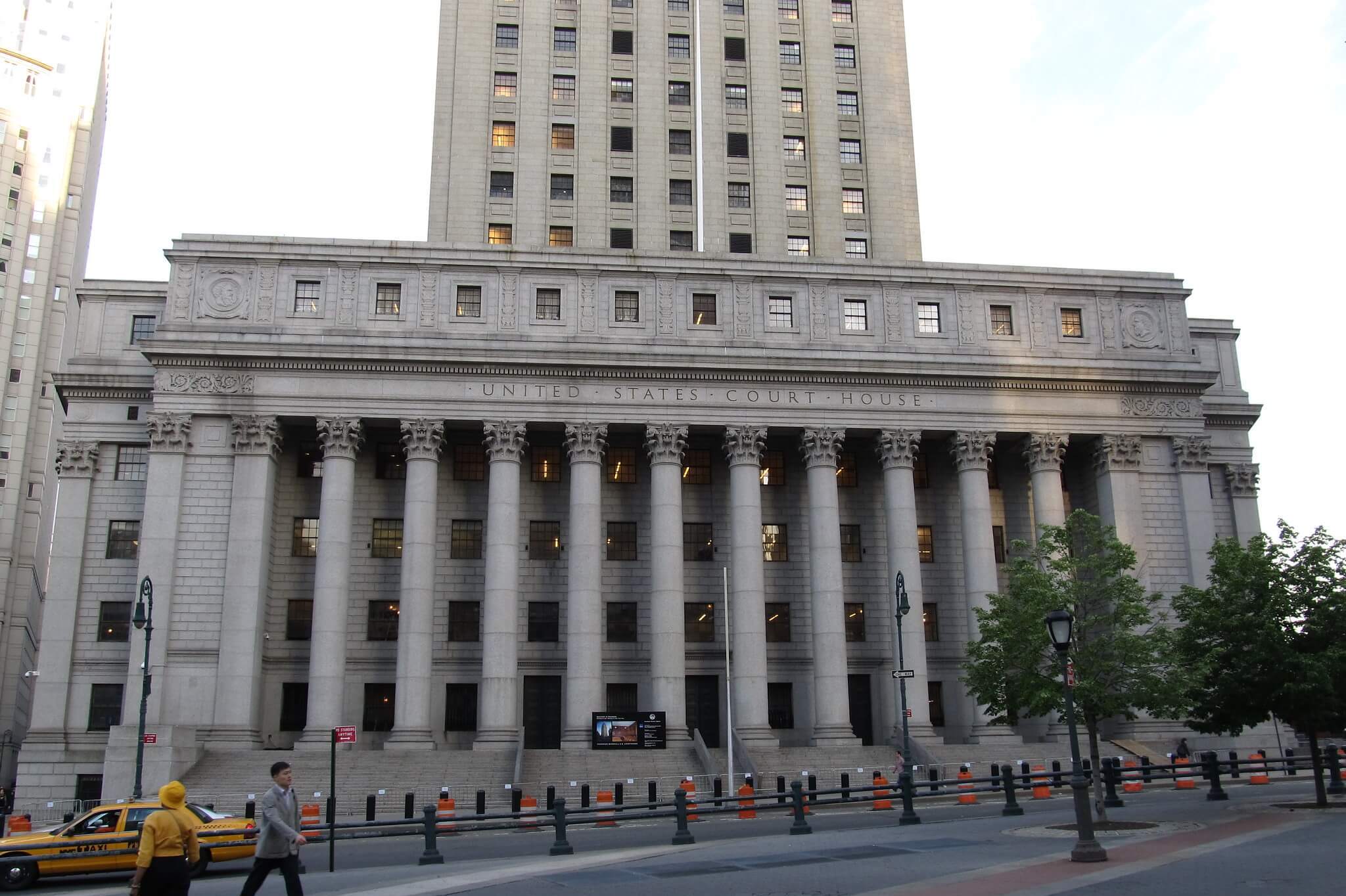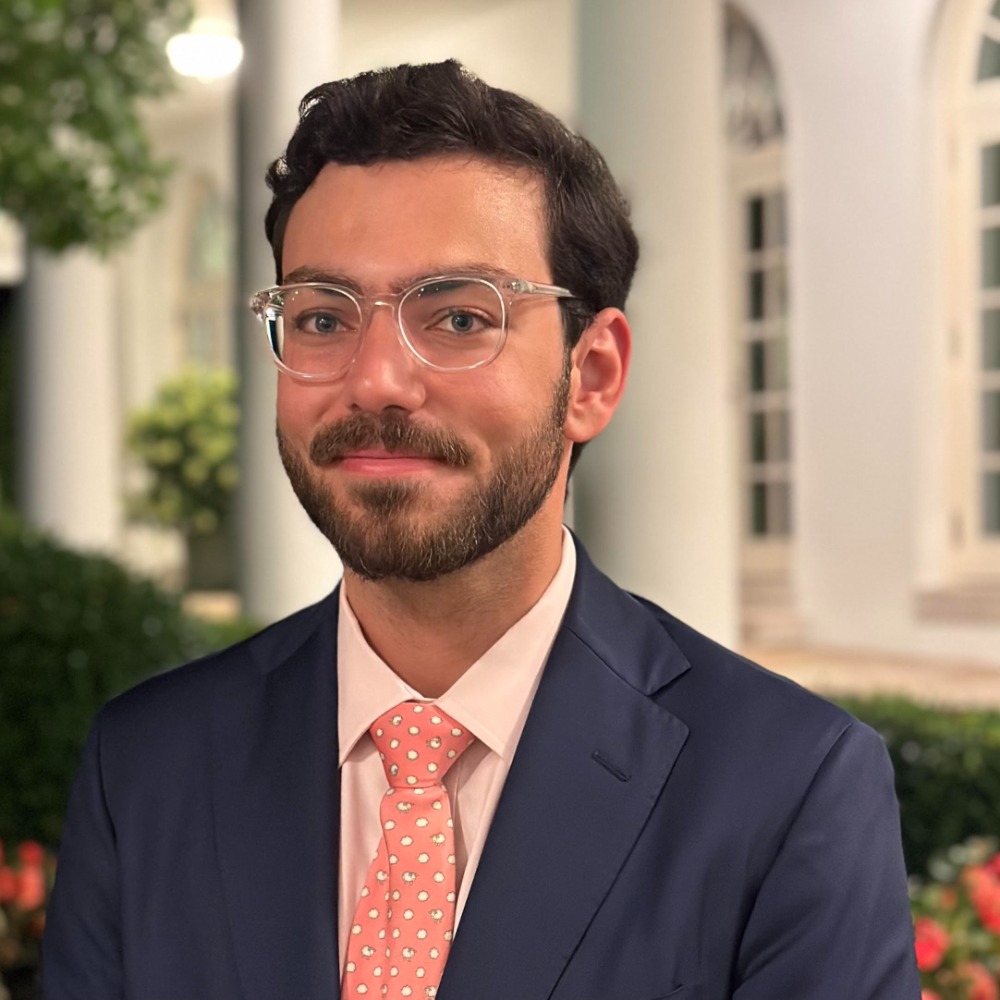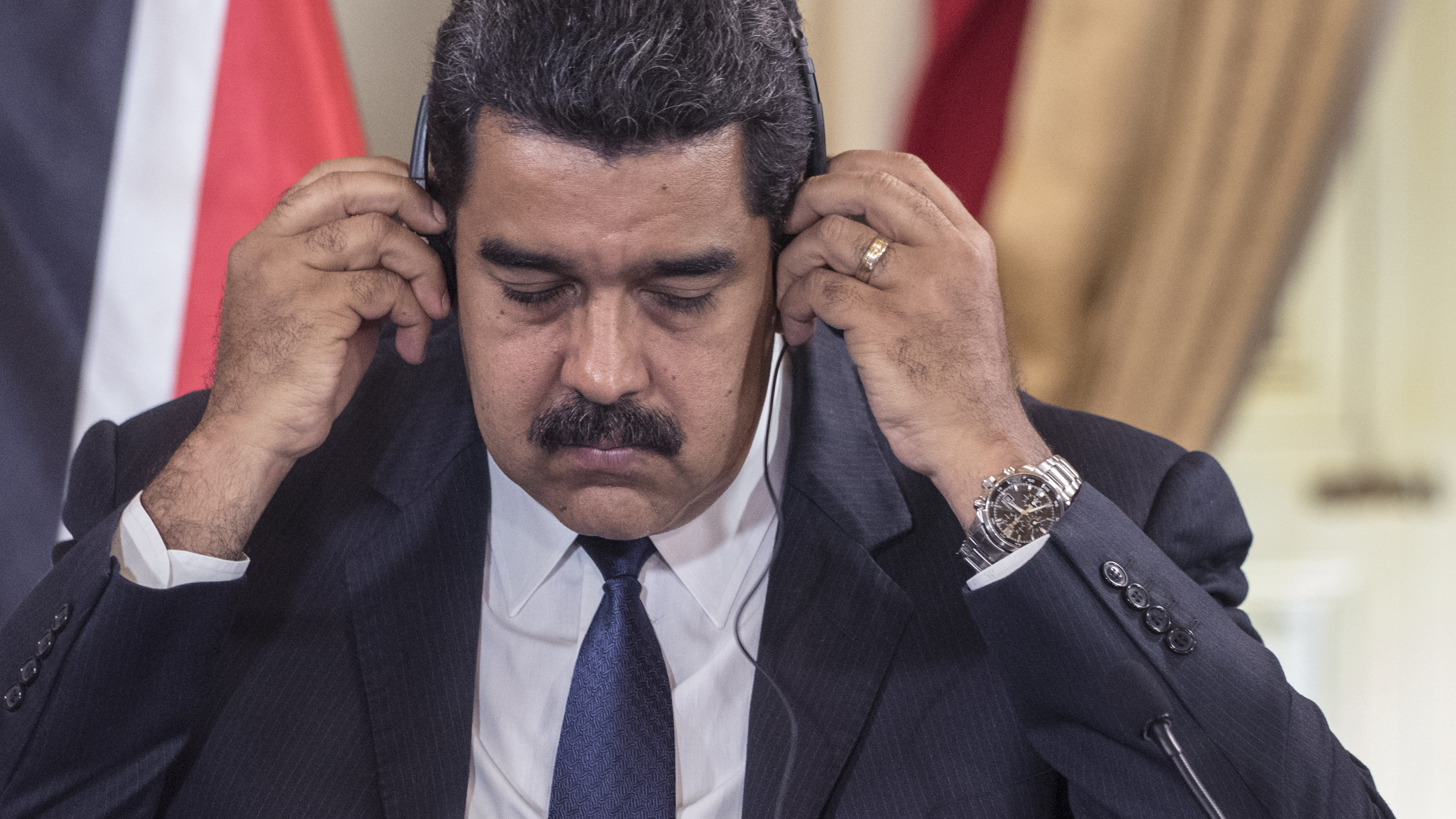The Second Circuit’s Halkbank III Decision
The Second Circuit ruled that the bank is not protected by common law foreign sovereign immunity—unless the Supreme Court decides otherwise.

Turkiye Halk Bankasi A.S.—or Halkbank, a Turkish state-owned bank accused of evading U.S. sanctions on Iran—recently lost another legal battle in its effort to avoid criminal prosecution. After the Supreme Court rejected Halkbank’s argument that it was entitled to immunity under the Foreign Sovereign Immunities Act of 1976 (FSIA), the U.S. Court of Appeals for the Second Circuit also rejected its argument that it could not be prosecuted under common law foreign sovereign immunity. In its Oct. 22, 2024, decision in United States v. Turkiye Halk Bankasi A.S., (Halkbank III), the court ruled that the common law does not shield the bank from criminal prosecution, clearing the way for prosecutors to target other state-owned entities in similar cases.
Judge Joseph F. Bianco wrote for a unanimous three-judge panel that there is no basis in the common law to conclude that a foreign state-owned corporation has absolute immunity from prosecution for alleged criminal conduct related to its commercial activities. Rather, courts must defer to the executive branch’s determination as to whether common law foreign sovereign immunity applies. Thus, because the Justice Department brought charges against Halkbank—thereby conveying the executive branch’s determination that the bank was not protected by common law immunity—the case must go forward.
With this ruling, a new criminal foreign sovereign immunity doctrine has begun to take shape. Foreign instrumentalities, regardless of state ownership, already faced a higher bar to obtain statutory foreign sovereign immunity under FSIA after the Supreme Court’s decision. Now, following these recent events in Halkbank’s legal saga, foreign instrumentalities are unlikely to secure immunity under the common law either—unless the Supreme Court decides otherwise.
On May 5, Halkbank filed a new petition for certiorari, asking the Supreme Court to review the Second Circuit’s decision and urging the justices to rule that such prosecutions are barred by absolute criminal immunity under the common law. If the Court grants review, the contours of this emerging doctrine could shift once again.
Background
Halkbank’s legal drama began in 2019, when the U.S. Department of Justice indicted the bank in the U.S. District Court of the Southern District of New York for fraud, money laundering, and sanctions offenses as part of the bank’s multibillion-dollar scheme to evade U.S. sanctions on Iran.
Halkbank filed a motion to dismiss on the grounds that the state-owned bank was immune from criminal prosecution under the foreign sovereign immunity doctrine based on two separate frameworks: the Foreign Sovereign Immunities Act and the common law.
FSIA is a federal law passed in 1976 that governs when foreign states and their instrumentalities can be sued in U.S. courts, generally granting them immunity in civil cases except under specific exceptions, such as for commercial activities with a U.S. nexus. In contrast, common law foreign sovereign immunity, which predates FSIA, relies on executive branch determinations to assess whether immunity applies in civil and criminal cases. Common law immunity applies to sovereigns and their instrumentalities for governmental functions.
The district court dismissed Halkbank’s motion to dismiss, allowing the prosecution to proceed with the reasoning that FSIA “does not appear to grant immunity in criminal proceedings.” The district court found that nothing in the text or legislative history of FSIA suggests that FSIA applies to criminal proceedings. Furthermore, the district court ruled that even if FSIA did apply to criminal proceedings, FSIA’s commercial activity exception would apply and support the prosecution of Halkbank.
The court also rejected Halkbank’s claim of common law foreign sovereign immunity, noting that the bank’s reliance on Samantar v.Yousuf—a case involving an individual foreign official sued in a personal capacity—lacked merit. The court emphasized that the granting or denial of common law foreign sovereign immunity has historically been the prerogative of the executive branch, which had expressed its intent to deny immunity in Halkbank’s case by pursuing the prosecution of the bank in the first place.
The Second Circuit, on interlocutory appeal of the lower court’s decision, did not address whether FSIA covered criminal proceedings. However, the court affirmed the lower court’s decision on the basis that FSIA did not confer immunity because Halkbank’s conduct fell under the statute’s commercial activity exception. The exception allows a foreign sovereign’s immunity to be withdrawn if the case or lawsuit is based on a foreign sovereign’s commercial activity, with a U.S. nexus. For example, a state-owned bank’s purchase of property in the United States would fit within the statute’s exception. The Second Circuit also determined that common law foreign sovereign immunity did not apply, but did not fully address the arguments regarding the matter.
Halkbank petitioned the Supreme Court for review, arguing that FSIA extends a general grant of foreign sovereign immunity in civil and criminal cases, but that the statute’s exceptions—including the commercial activities exception—apply only in civil cases. The Supreme Court disagreed and held that FSIA applies only in civil cases, not in criminal cases. In reaching that conclusion, the Court relied on the statute’s text, structure, and legislative context. It emphasized that the statute consistently refers to “civil actions,” sets out a system of exceptions and procedural rules applicable solely to civil litigation, and is housed within a chapter of the U.S. Code dedicated to civil procedure. The majority further relied on Samantar—which declined to extend FSIA to suits against foreign officials—to confirm that the FSIA does not cover criminal matters. However, the Supreme Court vacated the judgment and remanded the case back to the Second Circuit to explore whether Halkbank had foreign sovereign immunity under the common law.
As detailed previously inLawfare, a three-judge panel of the Second Circuit heard oral arguments on Feb. 28, 2024. During oral arguments, the parties clashed over what type of immunity Halkbank should receive. Halkbank argued that it was entitled to absolute immunity from criminal prosecution. It maintained that the restrictive theory of sovereign immunity—in which a state’s public acts receive immunity, but a state’s commercial acts do not—applies only in civil cases, not criminal ones, citing international practice. By contrast, the government argued that the restrictive theory applies in both civil and criminal contexts, and that Halkbank’s commercial activities stripped it of immunity.
The parties also disagreed over the role of the executive branch. Both sides acknowledged that the executive traditionally determines when a foreign sovereign receives restrictive immunity in civil cases, but they were split on whether courts should defer to the executive’s views in criminal cases. The government urged deference, which Halkbank opposed, warning that deference in this context would improperly permit the executive to act as “judge and jury” on a key jurisdictional question. Halkbank also argued that deference should be given only when the executive grants immunity, not when it denies it. Both sides claimed historical precedent supported their positions.
Common Law Foreign Sovereign Immunity and Deference to the Executive Branch
The Second Circuit ruled that common law foreign sovereign immunity does not protect Halkbank from criminal prosecution. Citing Supreme Court and Second Circuit precedents, such as the “guiding principle” explained in Republic of Mexico v. Hoffman that in foreign sovereign immunity cases, “courts should not so act as to embarrass the executive arm in its conduct of foreign affairs,” the Second Circuit held that deference to the executive branch’s determination regarding foreign sovereign immunity under common law “applies regardless of whether the Executive seeks to grant or, as in this case, deny immunity, and also extends to criminal cases.”
The court assumed that since the executive branch initiated the criminal prosecution, such action was sufficient to conclude that the executive had determined that common law foreign sovereign immunity was not a bar to the prosecution of Halkbank.
Further, the Second Circuit stated that such common law foreign sovereign immunity does not bar prosecution for state-owned corporations’ commercial, nongovernmental activity, as Halkbank argued. The Second Circuit found that common law history has long distinguished between immunity afforded to a foreign state and to entities that it owns. In cases in which a state-owned corporation or entity was found to have foreign sovereign immunity under the common law, the state-owned entity was focused on governmental functions, such as a railroad company or an oil company providing refueling services to the sovereign’s navy.
The Second Circuit, when determining what constituted governmental activity versus commercial activity, cited five actions that can be considered “strictly political or public acts” that would entitle a foreign instrumentality to immunity. They include internal administrative acts, legislative acts, acts concerning the armed forces, acts concerning diplomatic activity, and public loans. Halkbank argued that its actions were international administrative acts since Turkey had designated the bank as the sole repository of Iranian oil proceeds and that the government of Turkey would benefit from the scheme. Furthermore, Halkbank claimed that the bank’s actions fit into the “acts concerning diplomatic activity” category since Turkish government officials were involved in the scheme by lying to U.S. Treasury officials.
Deferring to the executive branch’s indictment—which makes clear that given the government of Turkey owns the majority of shares in Halkbank, the executive can be assumed to have evaluated the prosecution’s impact on foreign relations with the nation—the court found that Halkbank’s charged conduct in the indictment was a commercial activity rather than a governmental activity. The transactions at issue—in which Halkbank used money service businesses and front companies conducted via private, commercial banking channels to evade U.S. sanctions—were “far more of the character of a private commercial act than a public or political act.” The court rejected Halkbank’s argument that because the government of Turkey benefited from the state-owned bank’s actions, its commercial activity constituted a governmental action.
In prior cases, the court has rejected a motivation to advance the national economy as sufficient to confer immunity to otherwise commercial activity. The involvement of Turkish government officials in covering up the criminal scheme—via discussions with U.S. Treasury officials—was likewise not seen as diplomatic in nature, since the discussions were about the bank’s involvement in the criminal scheme, rather than an effort to affect foreign relations.
Key Implications for Foreign Sovereign Immunity in Criminal Cases
The Second Circuit’s decision in Halkbank III leaves several crucial questions unresolved while potentially expanding the scope of criminal prosecution against both state-owned enterprises and international organizations.
The Executive Deference Question
The ruling establishes that where FSIA applies, it “transfers primary responsibility for immunity determinations from the Executive to the Judicial Branch.” But where common law applies, the court found that the judiciary adheres to the “Executive’s determination of the scope of immunity.” However, the Second Circuit avoided directly addressing whether courts must defer to executive branch positions on immunity in cases where the executive determination deviates from the common law: “Because the Executive’s position is consistent with the common law, we defer to that position and conclude that Halkbank is not immune from prosecution in this case.”
The decision thus leaves open a crucial question: What happens when executive branch determinations about immunity conflict with common law principles, such as prosecuting a state-owned corporation engaged in governmental activity, not commercial activity, or granting immunity to a state-owned corporation engaged in commercial activity? This question could become particularly important in future cases where the executive branch’s position diverges from historical common law treatment of sovereign immunity.
International Organizations
The ruling raises interesting questions with regard to international organizations. Under the Supreme Court’s 2018 decision in Jam v. International Finance Corporation, international organizations receive the same level of immunity as foreign states. By extension, it is possible that Halkbank III’s framework for analyzing commercial activities could someday be held to apply equally to entities like the World Bank or the International Monetary Fund. This would mean their commercial activities—which other courts have previously held to include lending or financial development operations—could be subject to criminal prosecution in U.S. courts.
The “Commercial Activity” Question
While the court found Halkbank's alleged activities to be commercial in nature, it explicitly declined to resolve whether the FSIA’s commercial activity exception is coextensive with the common law standard. The government argued for equivalence, citing the Supreme Court’s observation that the FSIA aimed to codify the restrictive theory of sovereign immunity. However, the Second Circuit found it unnecessary to resolve this question, concluding that Halkbank’s activities qualified as commercial even under more restrictive interpretations.
This unresolved question could become important in future cases where the commercial nature of the activity is less clear. The difference between FSIA and common law standards might matter significantly in cases such as state-owned technology companies engaging in both commercial services and government surveillance, or sovereign wealth funds conducting both private investment and public policy functions.
***
While Halkbank III follows the established judicial practice of deciding only what is necessary to resolve the case, it nonetheless represents a significant development in foreign sovereign immunity law. The decision’s core holding—that state-owned enterprises can be prosecuted for commercial activities under the common law of state immunity—provides clear guidance on the intersection of sovereign immunity and criminal enforcement. Future cases will naturally develop the doctrine further as courts apply this precedent to new scenarios and actors.
One such case, as mentioned earlier in the article, may be just around the corner: Halkbank has petitioned the Supreme Court to review the Second Circuit’s decision, arguing that the common law provides absolute criminal immunity for sovereign instrumentalities and that the judiciary should not defer wholesale to the executive’s position on immunity in criminal cases. Whether the Supreme Court grants review or not, the shape of this doctrine is far from settled.





